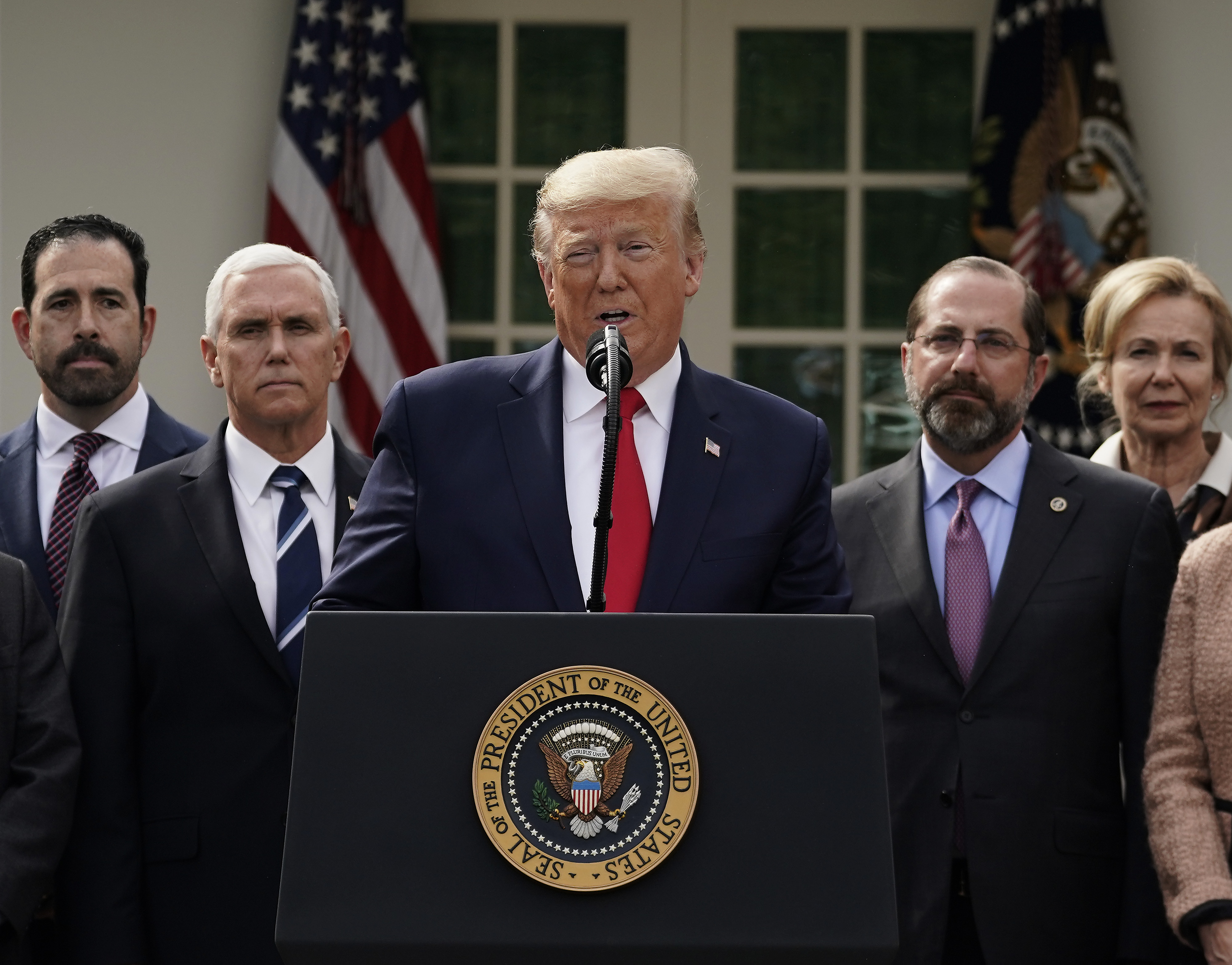Trump declares 'national emergency' over COVID-19 in US
The declaration will "open up access" to federal funds — some $50 billion — to fight COVID-19, he said.

Get the world’s most fascinating discoveries delivered straight to your inbox.
You are now subscribed
Your newsletter sign-up was successful
Want to add more newsletters?

Delivered Daily
Daily Newsletter
Sign up for the latest discoveries, groundbreaking research and fascinating breakthroughs that impact you and the wider world direct to your inbox.

Once a week
Life's Little Mysteries
Feed your curiosity with an exclusive mystery every week, solved with science and delivered direct to your inbox before it's seen anywhere else.

Once a week
How It Works
Sign up to our free science & technology newsletter for your weekly fix of fascinating articles, quick quizzes, amazing images, and more

Delivered daily
Space.com Newsletter
Breaking space news, the latest updates on rocket launches, skywatching events and more!

Once a month
Watch This Space
Sign up to our monthly entertainment newsletter to keep up with all our coverage of the latest sci-fi and space movies, tv shows, games and books.

Once a week
Night Sky This Week
Discover this week's must-see night sky events, moon phases, and stunning astrophotos. Sign up for our skywatching newsletter and explore the universe with us!
Join the club
Get full access to premium articles, exclusive features and a growing list of member rewards.
President Donald Trump has declared a national emergency over the new coronavirus disease, COVID-19.
"To unleash the full power of the federal government I am officially declaring a national emergency," President Trump announced Friday (March 13) during a press conference. "Two very big words." This declaration will "open up access" to federal funds — some $50 billion — to fight COVID-19, he said.
The national emergency declaration allows the administration to invoke powers under the Stafford Act, a law passed in 1988 that allows the Federal Emergency Management Agency (FEMA) to provide money from its disaster relief fund to state governments, according to Vox. This move will also allow his administration to waive certain laws and regulations to help healthcare facilities to better treat and contain patients, he said.
Related: 13 coronavirus myths busted by science
"Emergency orders I'm issuing today will also confer broad new authority to the Secretary of Health and Human Services," Trump said. The U.S. Secretary of Health and Human Services, Alex Azar, will now be able to waive revisions of laws and regulations to give healthcare providers, doctors and hospitals "maximum flexibility to respond to the virus and care for patients," he added.
For example, this would end limits to length of hospital stays and number of available beds. This declaration would also waive laws to enable telehealth — remote conversations with healthcare professionals — and waive license requirements so doctors from other states can provide help to states that are more in need, he said.
He also ordered every state to set up emergency operation centers and asked hospitals to activate emergency preparedness plans. He mentioned that they are participating in new partnerships with the private sector to increase the ability to test people for COVID-19.
Get the world’s most fascinating discoveries delivered straight to your inbox.
"We've been in discussions with pharmacies and retailers to make drive-through tests available in critical locations identified by public health professionals," he said. "The goal is for individuals to be able to drive up and be swabbed without having to leave your car."
Trump said 1.4 million coronavirus test kits are expected to be available within a week and 5 million will be available within the next month. But "I doubt we'll need that [many]," he added.
So far, more than 1,700 cases of COVID-19 have been reported in the United States, including 41 deaths. There may be many more cases, but testing in the U.S. has been slow, initially rattled by problems in the test kits and narrow directions on who to test.
"The system is not really geared to what we need right now," Dr. Anthony Fauci, director of the National Institute of Allergy and Infectious Diseases, said at a House hearing yesterday (March 12). "That is a failing."
- Going viral: 6 new findings about viruses
- The 12 deadliest viruses on Earth
- 28 devastating infectious diseases
Originally published on Live Science.

Yasemin is a staff writer at Live Science, covering health, neuroscience and biology. Her work has appeared in Scientific American, Science and the San Jose Mercury News. She has a bachelor's degree in biomedical engineering from the University of Connecticut and a graduate certificate in science communication from the University of California, Santa Cruz.
 Live Science Plus
Live Science Plus





